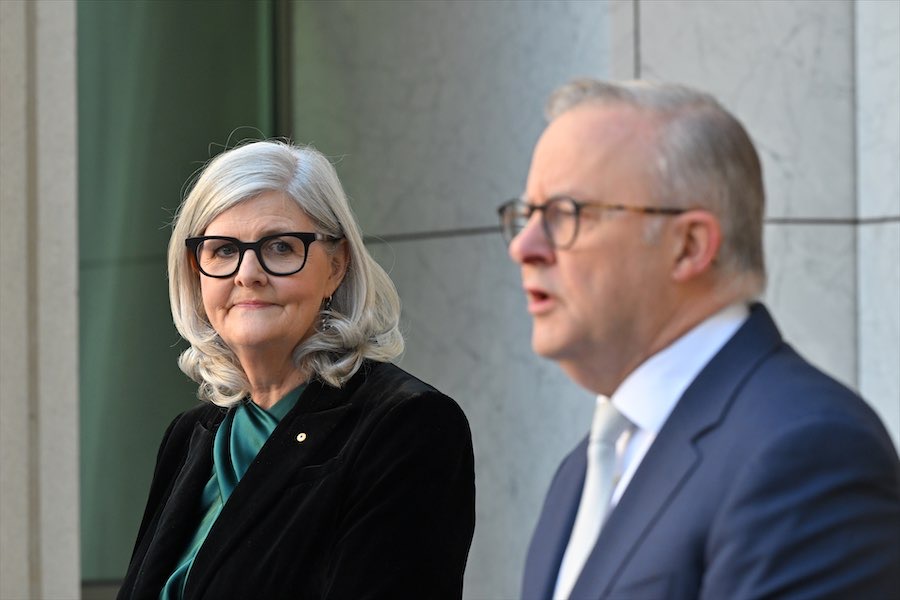IN a free society, religious views, no matter the cult, denomination or perspective, have the right to be aired, discussed and debated.
Believers in liberty have fought for centuries to ensure that a true democracy does not disenfranchise on religious grounds.
Ironically, the very people who have been protected by these efforts often miss that the converse is also true if others’ freedoms are to be protected. Theocracies are not free societies. They disenfranchise other religions and believers in no god. The 2011 ABS report found 23.1 per cent of Australians identified in this category – despite the question being placed in such a manner that was likely to produce a bias. In the ACT, just 55.2 per cent of people identify as Christian.
ACT Assembly Speaker Vicki Dunne had years of clear guidance on how to be inclusive regarding religious and non-religious belief.
Unlike the Federal Parliament that starts its daily business with an archaic form of the “Lord’s Prayer”, the ACT Assembly under Standing Order 30 starts with the Speaker asking MLAs to “pray or reflect on our responsibilities to the people” of the ACT.
It was a sad day when Attorney-General, Simon Corbell, was forced to use a motion to highlight that the Assembly “has an obligation to represent the interests, views and values of all citizens” and “is an institution separate from adherence or affiliation to any religious faith”.
The wisdom of the motion is that it included “the right of members to profess their own personal religious faith or philosophical perspective and to organise activities which reflect or honour their religious belief or philosophical perspective separate from the institution of the legislature”.
For clarity, Corbell added “shall not in any way endorse or be affiliated with any ceremony that involves adherence or affiliation with any religious faith”.
The influence of religion in government across the world is so pervasive that it was worthwhile, appropriate and timely for the Attorney-General to act to protect the separation of church and state even on this relatively minor matter. Freedoms are usually lost in minute doses.
Prof James Haire explained why the Speaker’s church service was inappropriate. He is a professor at the Australian Centre for Christianity and Culture, a previous president of the National Council of Churches and a Uniting Church minister, telling ABC radio: “The point is she is running services. The state is running services. She, representing the Assembly, is running a Christian service. That’s not how it works in a liberal democracy.” Alternatively, he agreed that Vicki Dunne, as an individual MLA, has the right to join with others to organise a church service – just as is the case with the Parliamentary Christian Fellowship in the Federal Parliament.
There were attempts during the Assembly debate to associate this service with the role of indigenous smoking ceremonies, veterans’ meetings and Islamic services.
The suggestion by the Leader of the Opposition, Jeremy Hanson, was that the motion would extend to prevent all such activities. He argued that the motion “risks tearing the (multi-faith religious community) fabric and damaging the relationship between this place and our religious communities”.
He was supported by his deputy Alistair Coe, arguing that the motion “will stifle freedom”. Even more preposterous was the assertion by Liberal Giulia Jones in suggesting the motion “is about extreme social progressives of the government imposing their beliefs and their will on those who hold a belief in God”. Nonsense! The opposite is true.
Former Speaker and now Greens Minister, Shane Rattenbury, before voting to support Mr Corbell, identified the Speaker’s intention was “to build a formal relationship between the Assembly and a religious body, one that would be ongoing”. His response to the invitation sums up the fundamentals of the issue: “As the Assembly is a modern, secular legislature, I feel that the introduction of a religious celebration that is formally connected to the institution would not be appropriate .. this should be done in a private capacity”.
Thank you, Simon Corbell, for your “eternal vigilance” to protect both the ability for people to practice their Christian or other religious beliefs as well as protecting the liberty of the non-religious of our community.
Michael Moore was an independent member of the ACT Legislative Assembly (1989 to 2001) and was minister for health.
Who can be trusted?
In a world of spin and confusion, there’s never been a more important time to support independent journalism in Canberra.
If you trust our work online and want to enforce the power of independent voices, I invite you to make a small contribution.
Every dollar of support is invested back into our journalism to help keep citynews.com.au strong and free.
Thank you,
Ian Meikle, editor





Leave a Reply